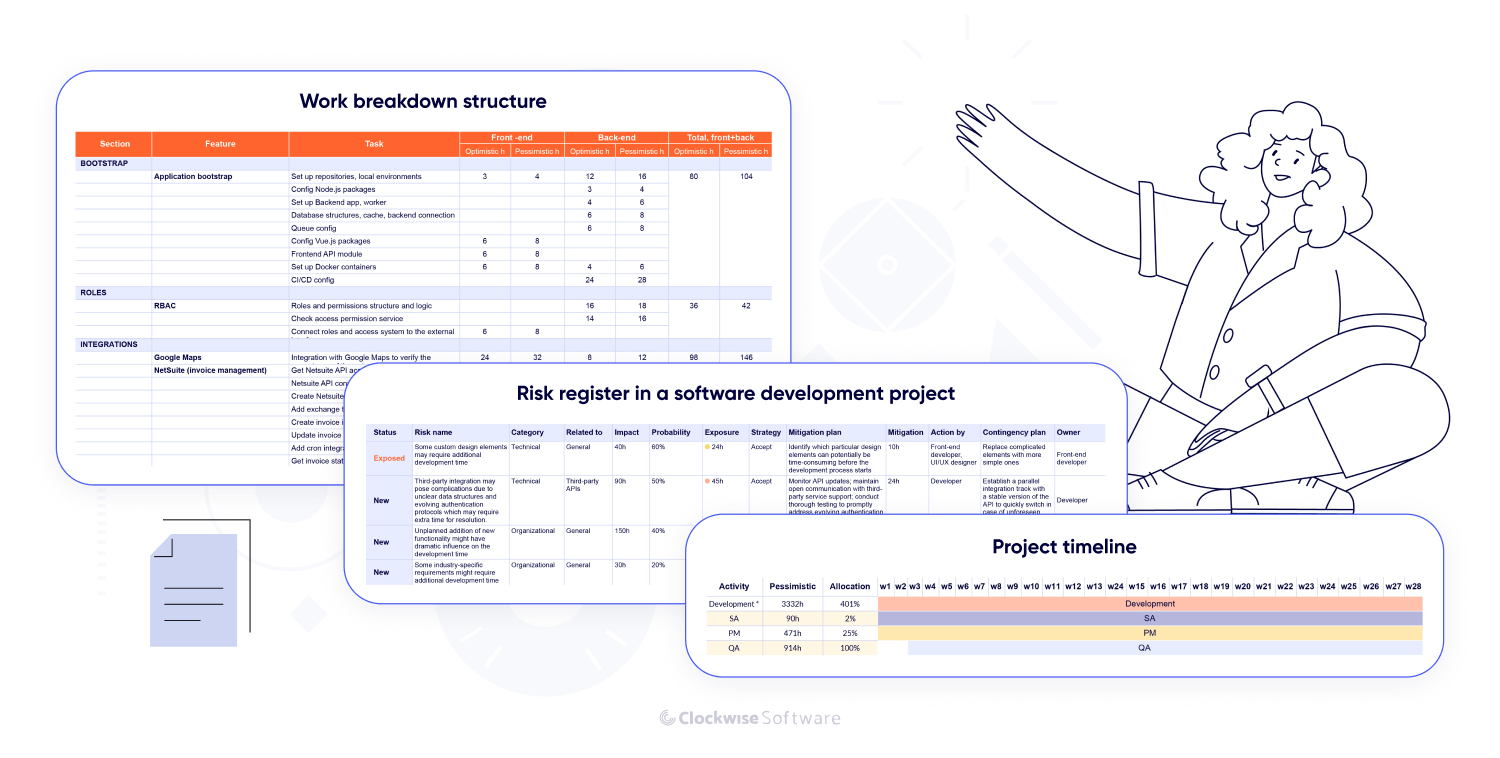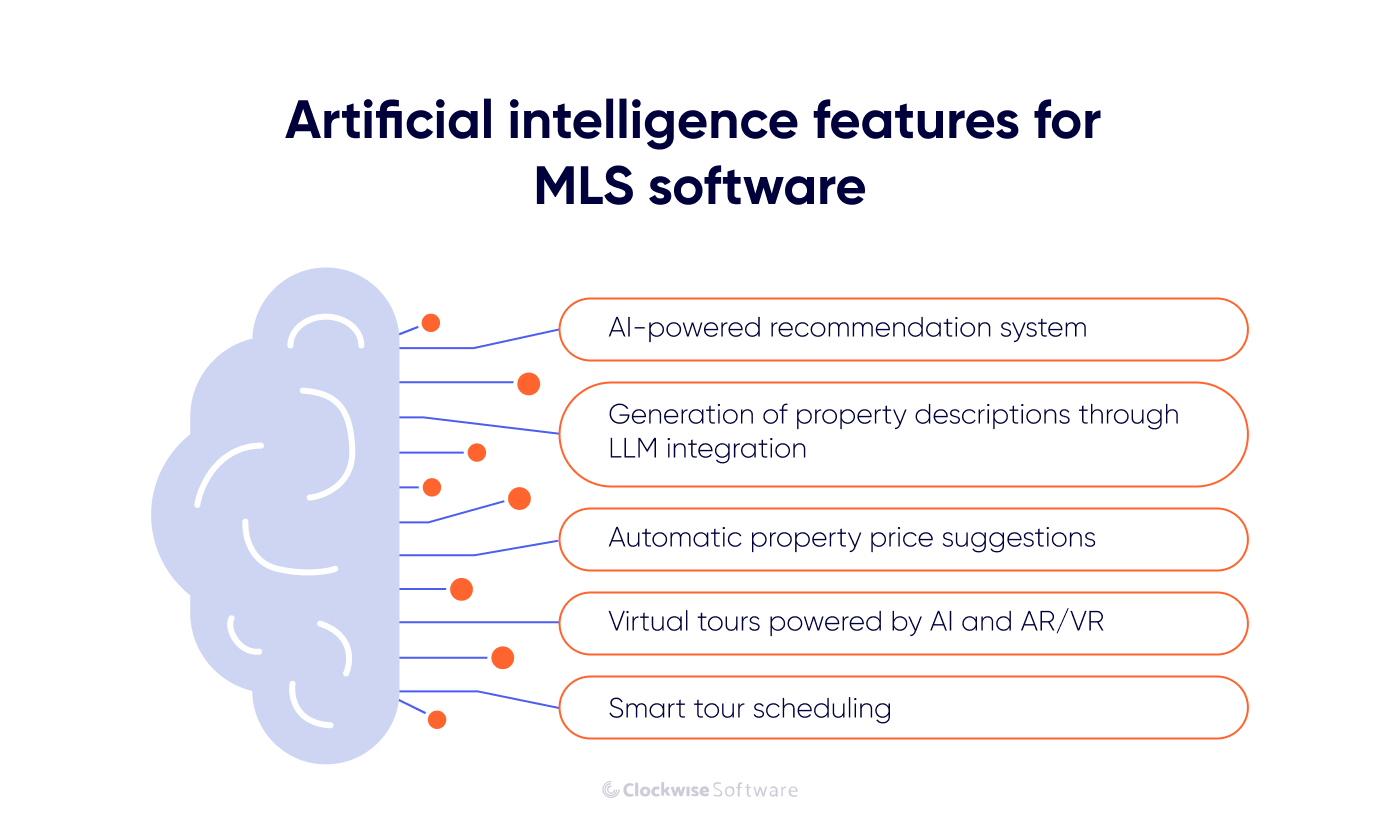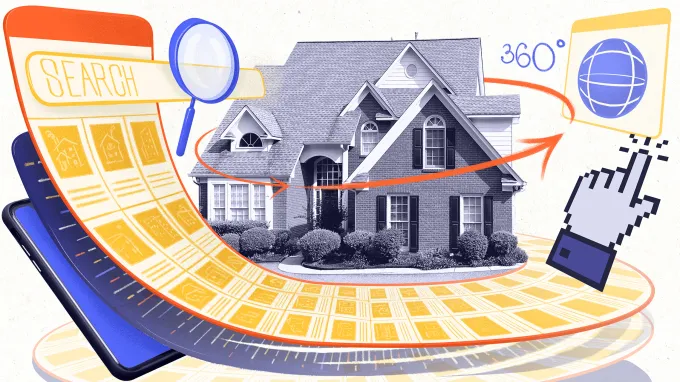AI solutions
What we do
Services
Experts in
How we work
Multiple listing service (MLS) software is a tool that agents and brokers rely on every single day; it’s the backbone of their operations. And when you create a backbone for businesses, you want to get it right.
We’ve worked on enough real estate projects to become a top Ukrainian IT services company for real estate by Clutch. Along the way, we’ve learned firsthand how to build great MLS software.
Here, we want to share what we know from 10 years of providing MLS software development services. We're about to cover the MLS software development process, approximate costs, functionality, common challenges, and technical decisions that work.
Welcome to our guide on MLS software development.
First, let’s make it clear what to expect when building an MLS solution. The process is not unique and resembles property management software development, which we released a guide about earlier. Usually, development goes this way:
That’s what MLS software development looks like in a nutshell. Let’s now zoom in on each stage so you know the key actions that result in a solid product.
The discovery starts with a few calls with you. We will ask you about the product’s business goals, desired functionality, and requirements for the system — everything to understand your needs.
Then, we start shaping your MLS listing software. Step by step, we define your product in more detail, from the list of functionality to precise requirements (what your system must do and how) for each feature. In the end, you can get up to 20 deliverables; here are the main ones :

There are many things we consider in the discovery stage to build a solid product from the start. We want to highlight some MLS-specific decisions we never skip:
Depending on your users’ location, you’ll need to follow local, state, and sometimes international laws around data privacy, property listings, and fair housing practices. Exploring the laws and defining compliance requirements is a must-have on project discovery. A few examples are GDPR in Europe, CCPA in California, the Fair Housing Act in the US, and antitrust laws that prohibit anti-competitive practices, collusion, price-fixing, and other activities that restrict competition within the real estate market.
An MLS doesn’t live in isolation; it’s part of a large ecosystem. Think real estate CRM software, real estate platforms, tools for analytics, and other external services. But the thing is, integrations can get tricky, especially if you don’t explore their documentation early. So, after finding out your desired integrations, we always take some time to look through its API documentation and define potential risks and limitations.
If your MLS doesn’t stick to common data exchange standards, it will struggle to connect with others. The main data exchange standards today are IDX, RETS, and RESO. While each has nuances, the Real Estate Standards Organization (RESO) has recommended the RESO Web API since 2016. For MLS, it’s wise to build with RESO standards in mind; it will ensure your platform’s smooth compatibility and consistent data exchange across the real estate ecosystem.
By considering these points, you’ll create a compliant, connected MLS that won’t require tons of re-dos in the middle of development.
In our experience, a discovery stage for an MLS project takes about 3 weeks, and its cost starts at $12,000. Of course, the timeline and cost can shift depending on what you expect as final deliverables, how much prep work you’ve already done, and how big your project is.
For complex platforms, this stage can stretch to 8+ weeks and cost $25,000 — but the time and effort upfront save you a ton of headaches later. Here are the discovery packages we offer our clients:
| Small package | Medium package | Large package | |
| Delivery time | 3 weeks | 5 weeks | 8+ weeks |
| Cost | $12,000+ | $16,000+ | $25,000+ |
Check out the full lists of deliverables for each package in our whitepaper:
When project discovery is done, it’s time to gather the development team and get to building your MLS.
Frequently, we start by creating a minimum viable product (MVP) — the version of your product that focuses on addressing the core needs of your audience without going all-in on every possible feature.
Why? Let’s be real: custom MLS software development is not a small investment, and there’s always a chance things won’t go as expected. When you start small, you can test the waters with the essential functionality, minimize software development risks, and adjust your MLS based on user feedback — all without committing $1,000,000 in real estate software development services.
Look at the MVP we built for one of our real estate clients — it’s a great example of how a simple application can improve an agency’s business processes.
The real estate MLS software development process isn’t unique — you can explore it in our guide on real estate web development. But what’s unique about MLS is its functionality. So, let’s take a look at the essential features of any MLS.
The idea of the MVP is to focus on delivering maximum utility with minimum functionality. Here are the must-have features to include from the start:
The MVP stage is not about developing all features that come to your mind but about selecting essentials and focusing on them first. Time to market is crucial at this stage. Later, when the base is solid and tested, you can layer on advanced features to elevate the experience even further.
On average, you’re looking at costs ranging between $150,000 and $200,000 for building an MVP of MLS software with a timeline of at least 6 months.
This estimate covers an MVP with all essential features like property listings, user profiles, an admin panel, a few integrations, basic search capabilities, and reporting tools. But if you’re aiming for something advanced from the start, the team will need more time to finish the scope of work, and the costs can increase significantly.
After your app MVP is live, you still need to work on it. The maintenance stage is the longest, lasting as long as your MLS exists. The amount of work here can vary depending on your priorities. Maybe you’ll want to build new features based on user feedback. Or maybe you’re happy sticking with the basics. Either way, there are a few things you can’t skip:
And if you’re thinking about improving your system, the post-release stage is the exact time to implement the enhancements. What can you do? We have a few examples that proved to bring value to MLS software users.
Your MLS might already be a game-changer for its users, but there’s always room to make the platform even better. Here are some upgrades worth considering:
Agents and brokers rely on data to close deals, so giving them powerful reporting tools can bring much value. Add more report options, make them customizable, or even go a step further with data visualization tools that turn raw numbers into easy-to-read charts and graphs. This kind of insight makes your platform invaluable for professionals in the field.
If your MLS isn’t mobile-friendly, you’re losing users. Consider building a real estate mobile app that will resemble the desktop functionality but make your MLS easy to use on the go.
The use cases for AI in MLS are numerous; it’s one of the core trends in the current stage of digital transformation in real estate.

You can try an AI-powered recommendation system that suggests listings that best fit your search query, making it easy to find a perfect match for buyers. Or, make it possible to generate property descriptions with AI — generative AI implementation is a great step to speed up some workflows in your company.
You can start as small as adding smart tour scheduling and letting AI suggest the best tour dates based on your calendar. Everything is up to your needs and wishes.
These are just a few examples of what can improve your platform and make it more appealing to users. The actual direction of your improvements will depend on your needs (and user needs).
Upgrading architecture, creating additional roles in the system, refactoring some parts of the application to optimize their performance, and integrating with additional sources — many things can make your MLS win over its competitors. The trick here is to monitor user feedback and prioritize updates wisely so you get the most value from each action.
Costs at this stage can range widely. A project estimation technique we use here is assessing how many specialists we need to involve based on the size of the workload and how quickly you want it done.
For example, when the scope of work is small, or you’re not in a rush, a small team can work at a comfortable pace to get the work done, which helps keep expenses low. On the flip side, if you have ambitious improvement plans for your MLS software or have tight deadlines, we’d scale up the team to speed things along. This approach naturally increases the budget but ensures on-time delivery.
Here’s an example of how a monthly budget might look based on the team setup.
| Team composition | Monthly budget |
|
$12,000 |
|
$48,000 |
| * On-demand involvement | |
You have two main options: hiring technical specialists in-house or outsourcing the whole process.
While working with an in-house development team gives you direct control, it demands more management and responsibility compared to outsourcing. If your company lacks technical leadership, seeking external expertise is a smart move — for example, you can opt for software development consulting for making essential technical decisions.
In our experience, the most effective approach is to outsource all three stages of real estate MLS software development to the same software development vendor. After performing all discovery and planning activities, your development team members will know exactly how to execute the plan, so they should be accurate and realistic with their estimates, technology stack selection, and so on, as this directly impacts their future work on the project.
MLS software development isn’t just about building another database; it’s about creating a tool that connects real estate professionals with the right opportunities and optimizes their workflows, from searching for properties to exploring market insights.
It takes planning and the proper development decisions to make it all work, but when done right, an MLS platform has all the chances to keep ahead in the market.
If you’re looking for a partner to build an MLS platform, we’re ready to help. Contact us to discuss the details of developing your MLS app and get an approximate time and cost estimate for your project.
